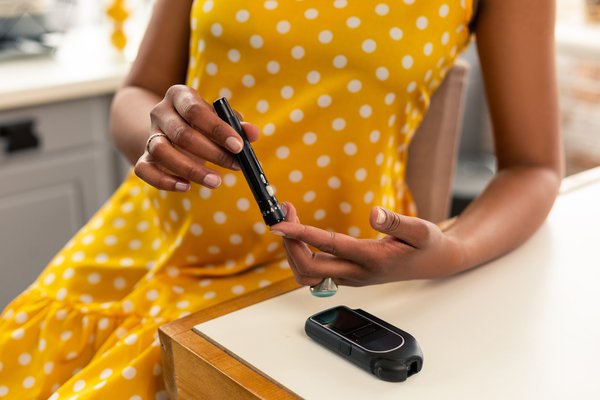During the early stages of pregnancy, a visit with your doctor will likely include a conversation about gestational diabetes. This type of diabetes occurs when a person without diabetes develops high blood sugar levels because their body is unable to make enough insulin during pregnancy. Gestational diabetes generally does not cause many symptoms, but the condition can have negative impacts on both the parent and child.
Gestational diabetes increases the parent’s risk of depression, pre-eclampsia, and the need to have a C-section. The baby of a parent with the condition is at risk for low blood sugar, jaundice, and having an abnormally high body weight after birth. They also have a higher risk of developing type 2 diabetes and being overweight later in life.
- MORE ON HEALTH & WELLNESS
- Everything you need to know about weighted blankets
- Six tips for staying healthy during the cold winter months
- Five clever ways to encourage your kids to exercise more
Screening for gestational diabetes is usually recommended during the second trimester of pregnancy for those at normal risk and is performed by getting a blood test. Whether you’re currently pregnant or supporting someone who is expecting, here’s what you should know about the condition and the glucose test.
Who’s at risk for gestational diabetes?
Gestational diabetes affects up to 10 percent of pregnant people. There are several risk factors, including being overweight (either before or during pregnancy), a family history of diabetes, high blood pressure, and being over 25 years of age while pregnant. If you’ve had gestational diabetes in an earlier pregnancy, your risk may be 30 to 70 percent higher during subsequent pregnancies.
If you already have diabetes, you should take extra care to control your blood sugar, particularly early on before you even know you’re pregnant.
What is the glucose test like?
Almost all pregnant people complete a glucose challenge test to determine if they have gestational diabetes around weeks 24-28. This test, also called the “one hour glucose test,” measures how the body processes sugar. You drink a sugary solution, and one hour later, have blood drawn to evaluate your blood sugar levels. You cannot eat during the test, but you can take small sips of water if you need it. You’ll receive your results later.
Should I worry if I fail my glucose test?
If your blood sugar is too high following the glucose challenge test, it does not necessarily mean you have gestational diabetes. Instead, you’ll be asked to return for a glucose tolerance test, more commonly known as the “three hour glucose test.” When you arrive at the office, you will have your fasting blood sugar tested, consume another more highly concentrated sugar solution, and then have your blood tested once per hour for three hours.
If two or more of the four blood draws show high sugar levels, you will be diagnosed with gestational diabetes. This condition can be managed, and goes away following pregnancy — although it may put you at higher risk of other types of diabetes later in life.
Your doctor will help you change your diet and exercise plan in response to diabetes, and if your blood sugar remains elevated, they may prescribe medicine to help you keep it under control. Some pregnant people with gestational diabetes will have to monitor their sugar levels daily with an at-home blood test. Additional ultrasounds may also be needed to monitor the baby more closely for the remainder of the pregnancy.
The glucose tests can be stressful for many pregnant people as the one-hour test is pretty easy to fail. If you do, stay positive, stick with your diet and exercise regimen, and prepare for the three-hour test.



